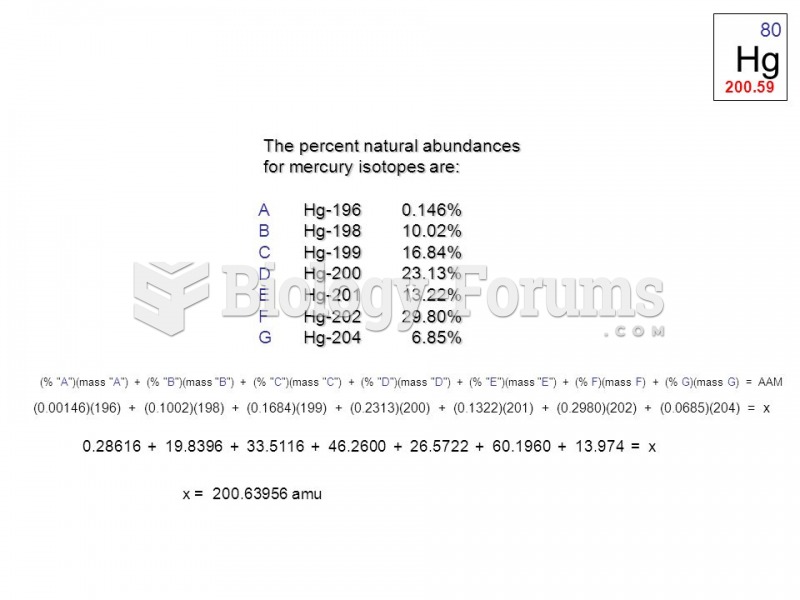This topic contains a solution. Click here to go to the answer
|
|
|
Did you know?
People with alcoholism are at a much greater risk of malnutrition than are other people and usually exhibit low levels of most vitamins (especially folic acid). This is because alcohol often takes the place of 50% of their daily intake of calories, with little nutritional value contained in it.
Did you know?
Everyone has one nostril that is larger than the other.
Did you know?
In 1835 it was discovered that a disease of silkworms known as muscardine could be transferred from one silkworm to another, and was caused by a fungus.
Did you know?
Vaccines prevent between 2.5 and 4 million deaths every year.
Did you know?
Women are 50% to 75% more likely than men to experience an adverse drug reaction.







